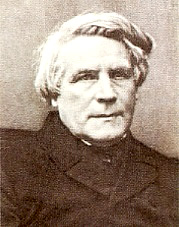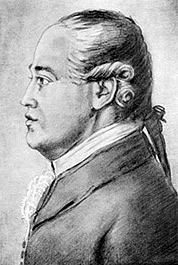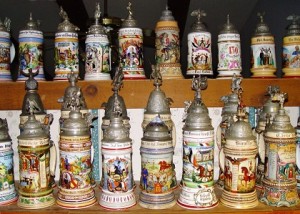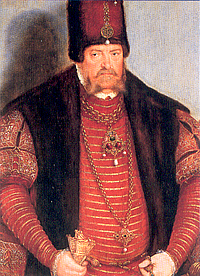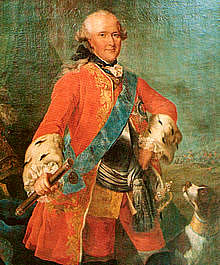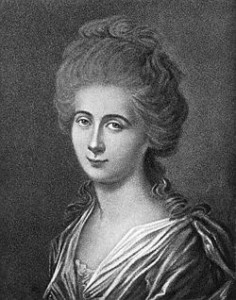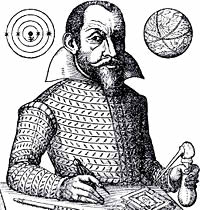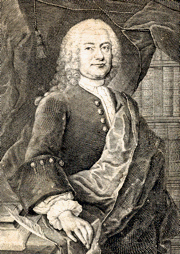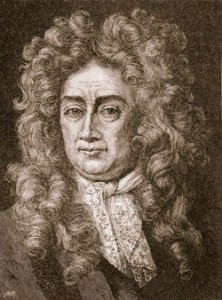January 15, 1791 Franz Grillparzer born in Vienna, Austria. Grillparzer was one of the leading dramatists of Austrian literary history. Important works by Grillparzer include, Die Ahnfrau (1817), Sappho (1818), Das Goldene Vlies (1821), König Ottokars Glück und Ende (1823), Des Meeres und der Liebe Wellen (1831), and Der Traum ein Leben … [Read more...]
January 14 in German History
January 14, 1683 Birth of Gottfried Silbermann (1683-1753) in Kleinbobritzsch, Germany. Silbermann's company was the leading builder of spinets, clavichords, harpsichords and organs in the age of Bach. January 14, 1800 Birth of Ludwig Ritter von Köchel in Stein, Austria. Although he had earned a doctorate in law, Köchel devoted his … [Read more...]
German Beer Steins
The origins of beer steins date back to the 14th century. As a result of the bubonic plague and several invasions of flies throughout Europe, Germany established several laws in the early 16th century requiring that all food and beverage containers be covered to protect their contents. By combining a lid, hinge, and thumblift, these 'German' … [Read more...]
January 13 in German History
January 13, 1505 Birth of Joachim II Hektor (1505-1571) in Cologne, Germany. Joachim II Hektor was the Elector of Brandenburg at the time of the Reformation. He remained true to the Catholic Church and to the Emperor of the Holy Roman Empire, but he tolerated Protestantism in the areas under his governance. On several occasions he served as … [Read more...]
January 12 in German History
January 12, 1519 Death of Maximilian I in Wels, Austria. Maximilian was the Archduke of Austria, the German king and the Holy Roman Emperor. He did much to expand and consolidate the Habsburg holdings. He nearly became Pope. The Pope, Julius, was very ill and a schismatic Council of Pisa offered Maximilian the position as an anti-Pope. After … [Read more...]
January 11 in German History
January 11, 1753 Birth of Charlotte Buff (1753-1828) in Wetzlar, Germany. She was a close friend of the poet Johann Wolfgang von Goethe in their youth. Goethe fell in love with her but she rejected him and instead married Johann Christian Kestner, a diplomat and art collector. In Goethe's novel The Sorrows of Young Werther, the character of … [Read more...]
January 10 in German History
January 10, 1573 Birth of Simon Marius (1573-1624) in Gunzenhausen, Germany. Marius was the astronomer who named the four largest moons of Jupiter. He was one of the first astronomers to use a telescope, the first to report the spiral nebula in Andromeda and one of the first to note sunspots. January 10, 1785 Death of Heinrich Wilhelm … [Read more...]
January 9 in German History
January 9, 1674 Birth of Reinhard Keiser (1674-1739) in Weissenfels, Germany. An early composer of operas, his style starts with Baroque and ends with Rococo. He studied music in Leipzig but then went to Hamburg where he wrote 120 operas. January 9, 1803 Birth of Christopher Memminger in Nayhingen, Germany. As a young man he immigrated … [Read more...]
Terrorism in Germany – Baader-Meinhof Gang
During the years of 1968-1977 Germany lived in fear. Three terrorist groups - the Red Army Faction (RAF), Movement 2 June, and the Revolutionary Cells (RZ) - gathered about a hundred Germans as their members. The Baader-Meinhof Gang, who called themselves the Red Army Faction, and two other terrorist groups went killing dozens of people. In 1968 … [Read more...]
January 8 in German History
January 8 Feast Day of St. Severinus (ca. 410 – 482) St. Severinus was born in about 410 in North Africa. He traveled to the area which is now Austria in about 453 to be of assistance to those afflicted by the attacks of the Huns. He founded a series of monasteries in the area to attempt to restore a certain order and organization after the … [Read more...]
- « Previous Page
- 1
- …
- 121
- 122
- 123
- 124
- 125
- …
- 139
- Next Page »
